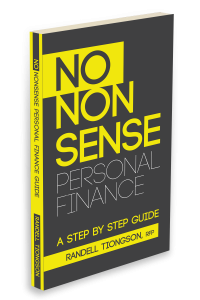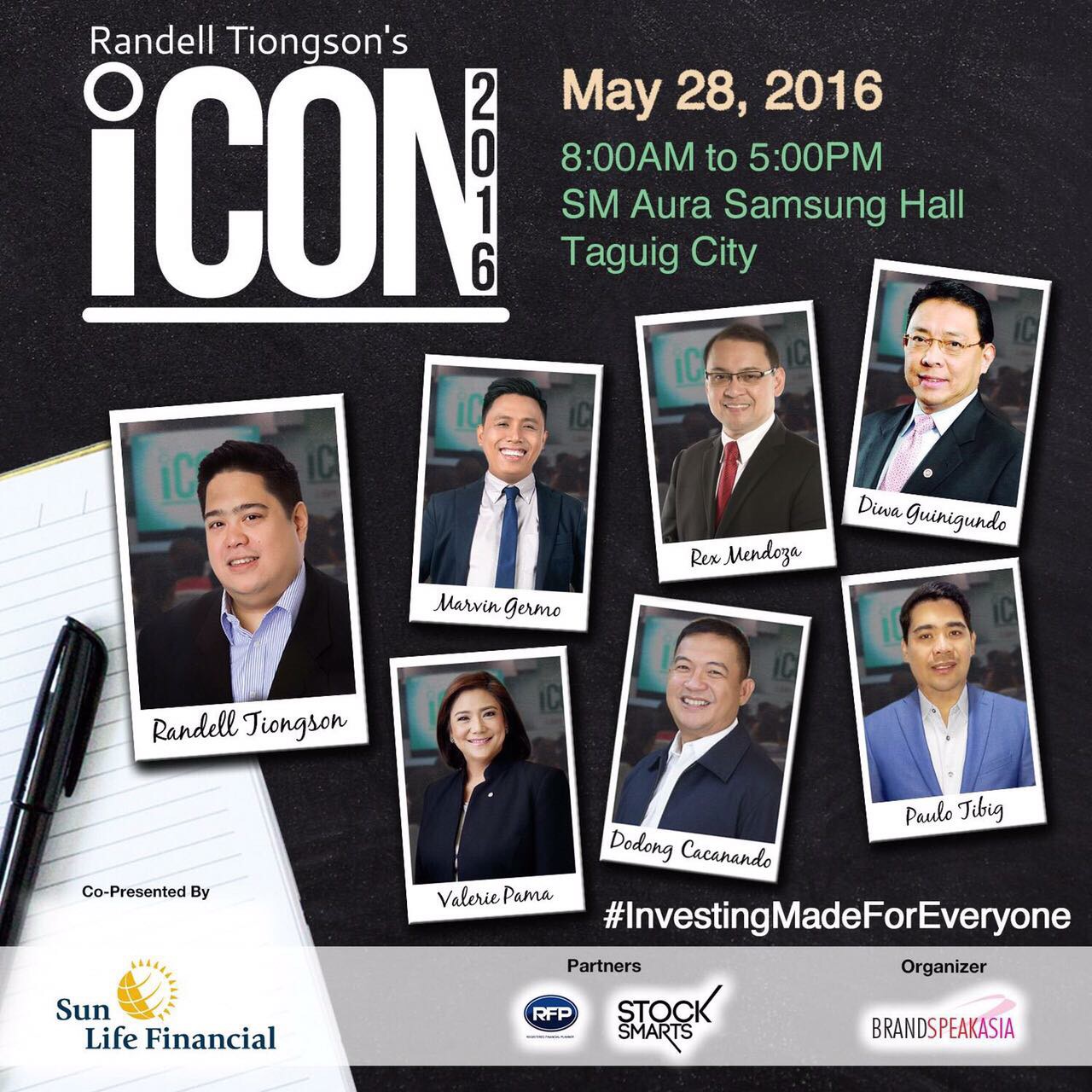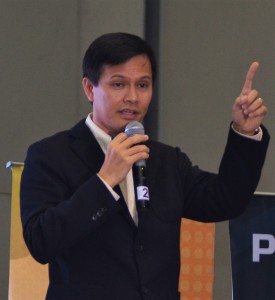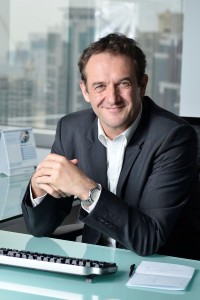Investing on an election year?
By Randell Tiongson on April 6th, 2016
QUESTION: Good day, Sir Randell! I’m Mara, a 27-year-old who started investing a couple of years ago. Right now, my portfolio is a mix of red and green. Right now, my gains are more than my losses, so whew. I’ve been told that stocks are among the best tools for investing, but with the looming elections and with 2016 considered to be a slow year for world economies, I’m conflicted. Should I put my money in cash first and stop investing during this election year? Your help would be greatly appreciated. Thank you po, sir Randell!—Mara via e-mail

Answer: Hello Mara! Congratulations on the performance of your stocks. Where most people are suffering from the downturn, you managed to gain rather than lose. However, I understand your dilemma. The next President is sure to have a strong influence on sectors and industries which will be given focus and drive the economy in the coming years. How do we pick which company stocks to buy during this election year? Or should we even invest at all? Here are my thoughts that may help you decide if you should invest this 2016:
Make a decision that sticks to your investment strategy and objective
In my book No Non-Sense Personal Finance, one of the investing guidelines I put is to know your objective for investing. Objectives will determine nearly every action we make with regards to finance.

What is your investment intended for? For retirement? For higher education? In addition, also determine your strategy in relation to your objective. Are you a long-term or short-term investor? If you’re a long-term investor with over 30 years until retirement, the upcoming elections will have lesser influence on the performance of your investment than if you were a short-term investor.
If you’re a short term investor, it’s best to sit and wait until the country has a new President. You can form your stock picks by focusing on companies in industries which the next President plans to focus on, be it mining, real estate, or infrastructure development. If you’re a long term investor, remember that there are companies that will stand the test of time. From banking to water and electricity services, it’s hard to imagine a Philippines without banks and other services.
The Philippines is a fundamentally sound economy
Last Feb. 2, I attended the Eaglewatch 2016 Elections Briefing hosted by Ateneo de Manila University (ADMU).
The first speaker, Dr. Alvin Ang, gave an analysis of the economic landscape of the Philippines and his projections for this 2016. He covered the performances of remittances (which are tapering off), the BPO industry (which will exceed OFW earnings), and real estate (high-end developments declined while mid-income housing increased) among others.
During this economic briefing, Dr. Ang enumerated the different factors that make the Philippines a fundamentally sound and stable economy. Despite the real estate market in a general decline from last year, there are different segments that experienced triple- and double-digit growth—commercial subdivisions at 39.81 percent, mid-income housing at 56.58 percent, and socialized housing at 101.23 percent.
Also, the BPO industry is expected to grow and will exceed OFW remittance earnings in the coming years and the debt to GDP ratio (at 45.4 percent as of Jan 2016) is much lower than other world economies.
Looking deeper (at the details) shows that the country is sound and stable economically.
In relation to investing during an election year, you may be feeling nervous. You just cannot lose your hard-earned money. But remember, the Philippines is a fundamentally sound and stable economy.
What will you do?
After reading the points above, you may now have a clearer picture of what you will do this election period. Depending on your investment objective and strategy, you now know whether or not you should invest right now and which stocks to put your money into.
On a larger scale, looking at the Philippine economy and the performances of different sectors will help you determine further where to invest and not to invest in. Happy 2016 to you, Mara!

The biggest investment conference is back! Join me, BSP Deputy Governor Diwa Guinigudo, Marvin Germo, Paulo TIbig, Rex Mendoza and Reina Pama iCon2016 this May 28, 2016 at the Samsung Hall of SM Aura.
Visit www.bit.ly/GO_ICON2016 for details and registration.
2016 Outlook, part 4
By Randell Tiongson on January 27th, 2016
For this installment of the 2016 Outlook, it is both an honor and a privilege to present the views of one of the most respected fund managers of the country.
————
The 2016 Outlook of Marvin Fausto
2015 was quite a challenging year for the investing public given the volatilities of the markets both for the bonds and equities. In fact, the best asset class that performed last year was deposit or money market funds since the market values of bond funds and equity funds were down as of year-end compared to the start of the year. Returns of these investments were negative on average. Many economists and analysts point to figures that trended below expectations. GDP growth for one is turning out to end 2015 near the 6% level, a full notch below Government’s forecasts of above 7%. Interest rates increased much faster that affected bond returns while earnings of stock exchange listed companies went through a series of downgrades throughout the year giving disappointing growth rates that caused much stock market selling towards the latter part of the year.
I mentioned in my report to Randell’s column last year that investments will be data dependent and that should numbers disappoint, such as the country’s GDP growth, investors will move accordingly.
“…the premium that investors give to the Philippines may be given a second look and will be adjusted accordingly”.
For the stock market, my view on investment strategy was more of a trading opportunity.
“With valuations remaining above historical levels and as trading volumes decline, stock market traders should remain selective and increase positions during market downturns and reduce holdings during market rallies”.
2016 will be a continuation, in my view. As the great unwind unfolds – that is, when the largest economy as the USA reverse the 7-year-long liquidity push stemming from near zero interest rates to spur economic activity – markets will react accordingly. The asset price excesses brought about by investors’ search for higher yields outside of the US is now reversing back home as the US dollar strengthens and the rest of the world, including China, currencies weaken. As we go through this period of reversal, higher than historical volatility is to be expected. Human behavior, particularly of those that have only experienced a bull market (or investors only since 2009), may undergo a long drawn phase of anger and denial until the point of indifference. For the Philippines, the added uncertainties brought about by election results and the potential weakening of OFW remittances will not help stabilize confidence. Even as the economy is expected to remain resilient at above the 6% GDP growth rate, confidence on the bond market as well as the stock market will remain cautious.
At this point, investors are well advised to take a step back and not lose sight of why they are investing in the first place. Investing should first and foremost be for a purpose, for a reason, and for a need. Markets go up and down. That is how it works. Match goals with risk appetite and horizon, implement your strategy, and let the markets run its course.
————-
 Marvin V. Fausto is President of the IFE Financial Advisers, Inc.. He was the former Senior Vice President and Chief Investment Officer of the country’s largest bank, BDO Universal Bank and in charge of the Investments unit managing over P700 Billion under the BDO Trust Banking Group. He recently took his early retirement having worked for over 30 years in the fund management industry and is now embarking on a new venture as a consultant to COL Financial to launch the first fund supermarket in the country making funds available online and easily accessible to everyone.
Marvin V. Fausto is President of the IFE Financial Advisers, Inc.. He was the former Senior Vice President and Chief Investment Officer of the country’s largest bank, BDO Universal Bank and in charge of the Investments unit managing over P700 Billion under the BDO Trust Banking Group. He recently took his early retirement having worked for over 30 years in the fund management industry and is now embarking on a new venture as a consultant to COL Financial to launch the first fund supermarket in the country making funds available online and easily accessible to everyone.
He held the position as head of the Trust Banking Group of Equitable PCI Bank from 2002 to 2007 primarily responsible for its overall business and operations. He also held the position of Vice President and Investments Head at Citytrust Banking Corporation. He started his career as an analyst at the former Far East Bank & Trust Co.
After having served as President and director, Mr. Fausto is currently a Board Adviser to the Trust Officers Association of the Philippines, the umbrella organization of the Trust Industry. He was also the Founding President and current Board adviser of the Fund Managers Association of the Philippines. He is also a member of the Board of Advisers of the CFA Society of the Phils.
2016 Outlook, part 3
By Randell Tiongson on January 21st, 2016
For the 3rd installment of my 2016 Outlook series, I am honored to present the views of the CEO of one of the largest insurance companies in the country today, AXA Philippines.
————–
The 2016 Outlook of Rien Hermans
This 2016, I see several positive factors across the key markets. They inevitably come with various degrees of risk as these markets undergo various political and economic transitions. This year will be by no means smooth sailing and the volatility of the market will be high, but quite clearly, there are several growth opportunities over the medium and long-term that seem to offer stable growth.
China’s economic slowdown— and its subsequent impact in markets across the globe— has created concerns, with the recent stock market lock-down seeming to reinforce a growing aversion for China exposure. But while its days of hyper-GDP growth are over, the Chinese economy is still expected to grow reasonably well 2016 and beyond, subject to the Chinese government’s ability to implement the proper reforms. Volatility is to be expected as it transitions from a manufacturing-reliant economy, to a more sustainable consumption driven one.
This transition will inevitably impact most emerging markets, particularly those in Asia. But as a whole, Asia is still expected to drive global growth over the next 3 years. The Philippines and its consumption driven economy in particular, remains well-positioned for a defensive economic theme amidst the global volatility. Understandably, the eventual results of the presidential election may potentially impact the degree of acceleration, but will not alter the upwards trajectory. The country’s economic fundamentals remain on solid footing, and shall remain through the political transition, pointing to sustainable economic growth.
The US has been recovering and recent figures show modest economic growth, which is expected to continue in the coming years and allows a slight increase in interest rates. The dollar can further strengthen against both the Euro and the Peso. The stock market in the US, which has been recovering over the past two years, is expected to show a slight positive growth, with the expectations that sectors like the digital oriented stocks will outperform.
I expect the European markets to outperform the global markets in 2016, as Europe has clearly started its recovery and economic growth is expected in the major economies within the Euro zone. This will further be accelerated by the stronger competitive position as a result of the lower Euro.
This 2016, the best strategy seems to be to diversify and have a long-term mind-set. Balance investments among markets with a strong consumption theme, like the Philippines, while considering developed markets like Europe and include some exposure in US-denominated funds to benefit not only from the growth of the overseas markets, but also from the stronger currency.
—————–

Convinced of the value that financial products deliver to customers Rien has spent over 2 decades in the financial service industry in the fields of product development, distribution, marketing, strategy and general management.
In 1990 he started with ING Bank in the Netherlands, where he was responsible for developing and implementing Life insurance as a new product group offered by the bank. His analytical skills and strategic vision were recognized and for 4 years he was vice president Strategy & Planning advising the Board of ING on strategic issues.
In 1999 he moved to Asia and after a short stint in Hong Kong he was assigned as the CEO of ING Life as well as CEO of Aetna Life & Healthcare in the Philippines, Executive Director and General Manager of ING Malaysia and the last position he held in ING was Board Member of ING Financial Services Poland.
In 2009 Rien ‘crossed the line’ and joined AXA with the assignment to transform AXA Philippines into a strong player on the domestic market with a sustainable position in the top 5. Focused to be the best in the eyes of the customers the company has strengthened its position in the growing life insurance and investment market in the Philippines.






